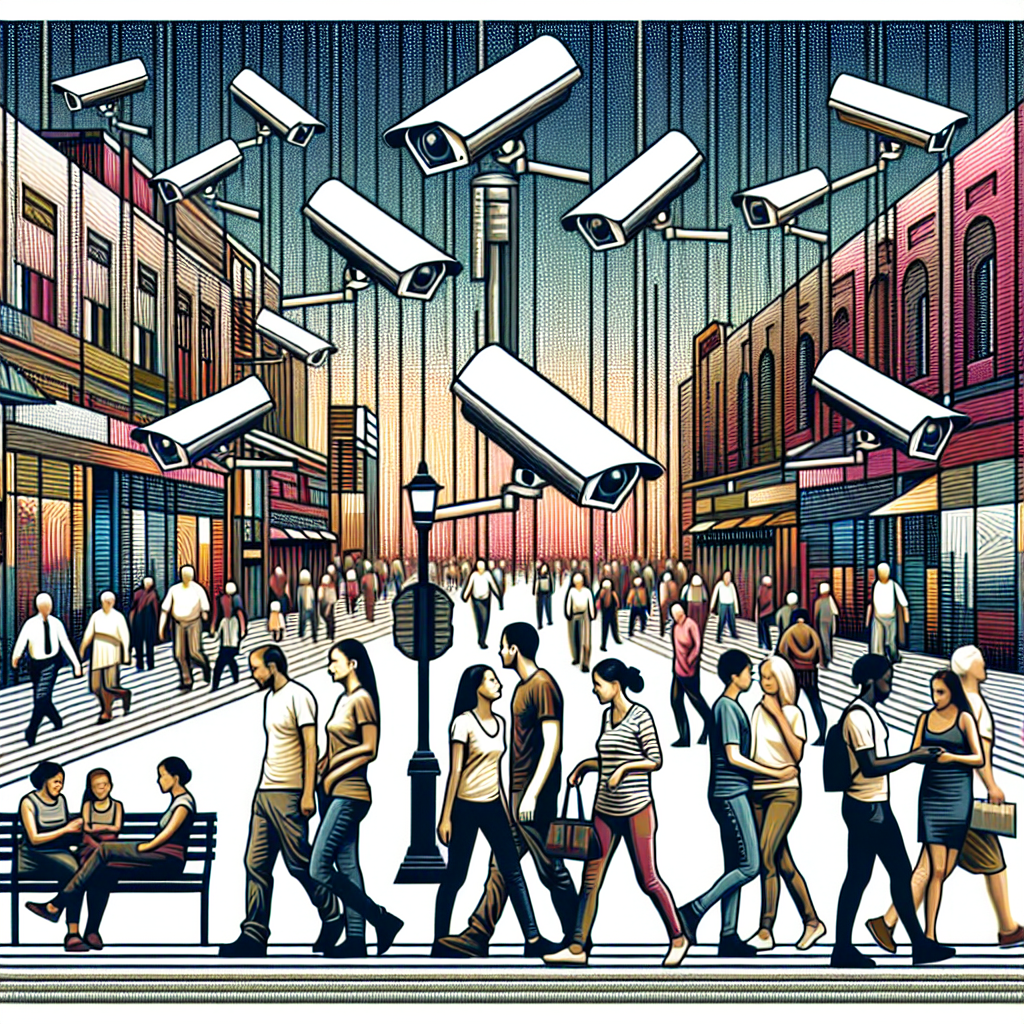Understanding Government Surveillance
In the modern world, the concept of privacy is evolving dramatically. With the increasing integration of technology into daily life, governmental surveillance has become a contentious topic. Various forms of surveillance, from social media monitoring to advanced facial recognition software, raise questions about how much privacy individuals truly possess.
The Rise of Surveillance Technology
Advancements in technology have led to a plethora of surveillance methods that allow governments to collect vast amounts of data. Technologies like CCTV cameras, drones, GPS tracking, and phone data extraction have revolutionized how authorities monitor citizens. Studies have shown that the implementation of public surveillance technology has risen dramatically, especially in urban areas.
Global Perspectives on Surveillance
Different countries exhibit varying approaches to surveillance. Nations like China employ a comprehensive surveillance system that includes artificial intelligence-powered facial recognition and extensive social credit systems. Conversely, in democratic societies such as the United States, surveillance practices are subject to bias, often focusing on certain demographic groups. This divergence underscores the debate surrounding privacy rights based on cultural and political ideologies.
Legal Frameworks and Privacy Laws
The future of privacy hinges heavily on existing legal frameworks. In the U.S., laws like the Fourth Amendment protect citizens from unreasonable searches and seizures. However, rulings by courts on what constitutes “reasonable” surveillance frequently evolve, often lagging behind technological advancements. In Europe, the General Data Protection Regulation (GDPR) emphasizes data protection and privacy, setting a high standard that could influence global norms.
The Role of Technology Companies
As private corporations collect user data, the overlap between government surveillance and private industry poses significant privacy concerns. Tech giants like Google, Facebook, and Amazon possess vast repositories of personal information. Their collaboration with government agencies can lead to data sharing that many argue erodes personal privacy. The relationship between these corporations and state authorities remains a hot topic of debate, as regulations struggle to keep pace with innovation.
The Impact of Social Media
Social media platforms have fundamentally altered perceptions of privacy. Users willingly share vast amounts of personal data, often overlooking privacy settings that could limit data exposure. Algorithms developed by these platforms also contribute to the erosion of privacy, as they analyze user behaviors for targeted advertising or government tracking purposes. The question remains: Are users aware of the price of their convenience?
Public Sentiment on Surveillance
Public opinion on surveillance varies significantly, often influenced by current events. After incidents of terrorism or crime, support for increased surveillance may rise, suggesting a trade-off between safety and privacy. However, movements led by civil rights advocates challenge governmental overreach, calling for transparent surveillance practices and the protection of individual rights.
The Future Landscape of Surveillance
Experts anticipate that the future may see more sophisticated surveillance systems powered by artificial intelligence. Predictive policing, which uses data analytics to anticipate criminal behavior, exemplifies this trend. The ethical implications of such tactics—often criticized for reinforcing biases—leave society grappling with questions of accountability and fairness.
Encryption and Personal Security
As governments ramp up surveillance efforts, encryption technologies are increasingly vital for protecting personal privacy. Tools like end-to-end encryption shield communications from unauthorized access, including government bodies. However, debates regarding “backdoors” for law enforcement raise concerns about potential abuses of power and undermining the very protections that encryption offers.
The Role of Activism
Activism plays a crucial role in shaping the future of privacy. Organizations like the Electronic Frontier Foundation work tirelessly to defend civil liberties in the digital age. Grassroots movements raise awareness about the implications of surveillance and advocate for policies that enforce stricter regulations on data collection and storage. Their efforts can influence legislation, nudging governments toward respecting citizens’ privacy rights.
Opportunities for Better Privacy
Emerging technologies hold the potential to enhance privacy protections in innovative ways. For instance, decentralized platforms and blockchain technology promise secure alternatives to traditional data handling. These innovations could allow individuals greater control over their personal information, minimizing government access without user consent.
Mental Health and Surveillance
The psychological effects of constant surveillance can be profound. Studies indicate that individuals who feel watched may experience increased anxiety and stress. The notion of “chilling effects” suggests that awareness of surveillance can deter individuals from expressing dissenting opinions or engaging in free discourse. Balancing security with mental well-being represents a crucial challenge ahead.
Education and Digital Literacy
Promoting education and digital literacy is imperative to empower citizens in an age of surveillance. Understanding how data is collected, processed, and used can help individuals protect their privacy. Education systems should integrate privacy-focused curricula, equipping future generations with the skills needed to navigate a digital landscape marked by constant monitoring.
Future of the Right to Privacy
As legislative landscapes change, the future of privacy will depend heavily on societal engagement. Individuals must advocate for their rights in an increasingly surveillant world. Engaging in civic discussions, supporting privacy-focused legislation, and utilizing privacy-centric technologies can foster a culture valuing individual rights over state surveillance.
Conclusion
Humanity stands at a crossroads concerning privacy rights in the digital age. Government surveillance is unlikely to disappear entirely but can evolve to respect individual freedoms. By fostering a dialogue around these issues, embracing technological advancements that prioritize privacy, and holding institutions accountable, society may inch closer to a future where individuals can exercise autonomy without fear of unwarranted scrutiny.













Leave a Reply